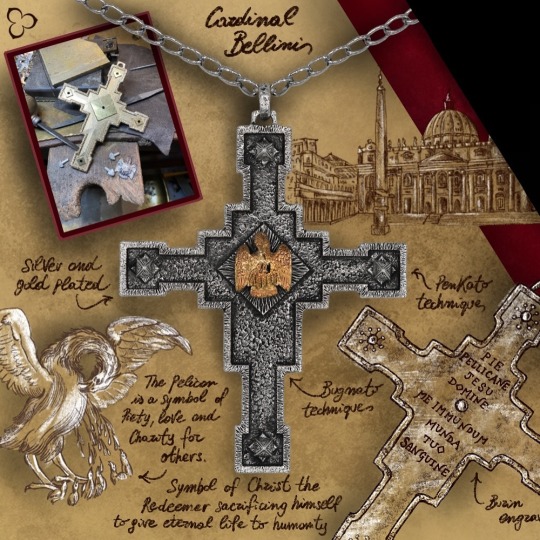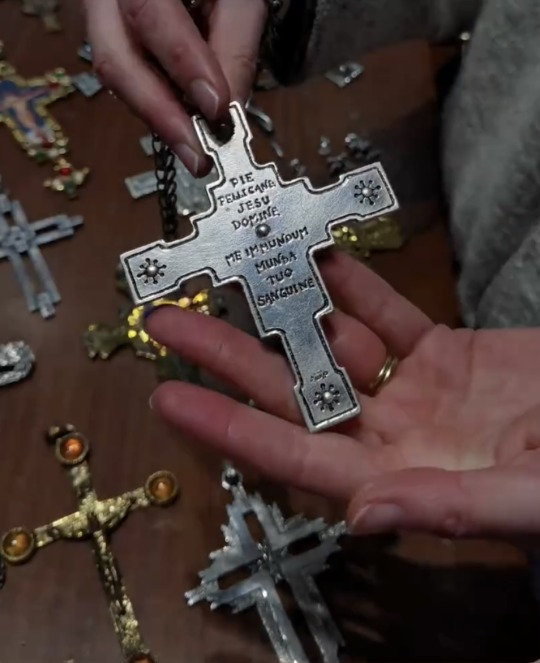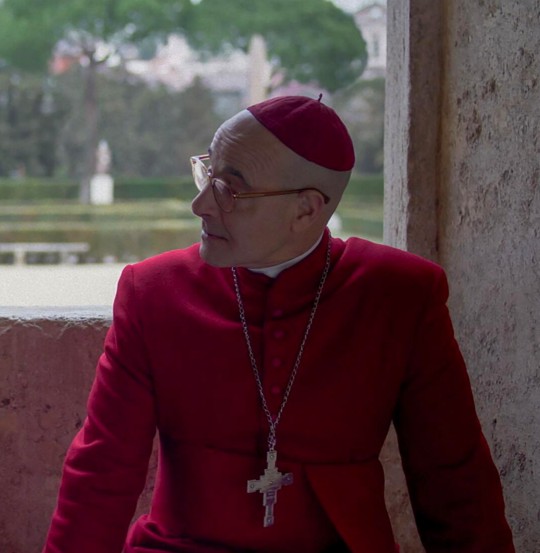#save me conclave. save me.
Explore tagged Tumblr posts
Text
I have compiled every single available Conclave clip within Vastedge XT
(at least, I think so.)
Where I got these, one folder is of Tillman's Google Drive, and the other folder is Solradguy's archive of it (animations taken from Tillman). Some animations are more 'cut up' in Tillman's Drive compared to the latter.
Here is the link. (Flashing lights warning for a lot of these btw. There's so much.)
Hooray to. What. The 6 more hours I've spent the past few days. Yay. I've spent 20 hours for fucking Vastedge. Whatever. Man.
Conclave has not given me any compensation for all my woes. Frowning emoji. ☹️
Edit: if there's duplicates (I think there's some in the SRG folder). Apologies. I am tired.
14 notes
·
View notes
Text

Innocentius blessing turtles
(Inspired by icons of St Francis of Assisi)
#and saving me from an awfully long art block#conclave#conclave 2024#conclave fanart#vincent benitez#digital art#digital painting#artists on tumblr
3K notes
·
View notes
Text

220 notes
·
View notes
Text
me to thomas lawrence: my beautiful princess, first lady of the vatican with a disorder
me to ralph fiennes: i think men should start in jail and prove their way out
#ralph fiennes you're a crazy bastard#conclave#conclave 2024#thomas lawrence#ralph fiennes#carlos diehz save me from all those problematic white men eme#just read about his personal life y'all will know
89 notes
·
View notes
Text
meet me @ pope innocent xiv's christmas eve mass tonight if you want a hug and a blessing
62 notes
·
View notes
Text
thinking about benitez….
22 notes
·
View notes
Text
anyways i need to smoke with tedesco, i need to be off in some corner late at night, the two of us huddled together so we don't get caught and passing the joint between us, giggling at something stupid
#i...am unfortunately in love with him...#please save me#it's this or we get high and go lay on the floor of the sistine chapel to look at the art#conclave
16 notes
·
View notes
Text
has anyone tried emailing the director of the vampire film carlos diehz was in........
#conclave#as a community we need to lock in........I need to see carlos diehz as a vampire#it gets dark too early save me#I cant get on linkedin and also dont want to be a freak about it to the director
11 notes
·
View notes
Text
i feel like i would just have to tell you 'my favorite film is the invitation (2015)' and youd be like. you would enjoy conclave wouldnt you
#the theatre was all old people save for two that were my age/possibly younger#and they actually left halfway through and didnt come back LMAO.#they are probably the same kind of people that would have bounced halfway thru the invitation#calling it boring or obvious........#the soundtrack and like. sound effects? struck me as very horroresque#it turns out that the film is supposed to be a mystery Thriller#probably in the same way that the invitation is supposed to be a psychological thriller minus the part where it becomes a slasher#but. could you imagine if conclave turned into a slasher at the end LMAO#its the build up of tension and the suspense and the human drama#IF YOU LIKED CONCLAVE CAN YOU PLEASE WATCH THE INVITATION (2015). PLEASE????????
7 notes
·
View notes
Text
i think writing cover letters and answering ten billion short answer questions about myself and my goals for internship and job applications actively drains my life force
4 notes
·
View notes
Text

#i just want to know when his birthday is#came to seeinf him being chronically online#carlos diehz#conclave#conclave 2024#vincent benitez#goffredo tedesco#carlos diehz save me from all those problematic white men eme
36 notes
·
View notes
Text
Fucked up that most people's first time seeing the Conclave (in Sign rather than Vastedge) they're there. For some time. And then fucking die. Like yeah you're relevant to the whole fucking world of guilty gear. Skill issue tho, should've planned this better after nearly 200 years. Bye bye. Now let's move on !
At least Chronus has that one moment in Rev where he broke out Asuka... He did play a good background support role. Claps for Chronus. 👏
I wonder if Libraria would have done the same thing if she followed Chronus' words and took the Conclave's dream on her shoulders, being the one to live through it....
#nO FAIR. *slams fist into table* WHY DO I FALL IN LOVE WITH THE BITCHES THAT HAVE MINIMAL CHARACTER SHOWN. SAD.#i think they're so loser and so cool. my lambs. i need them.#like. ariels is unrestrained for most of her screen time. and that tends to show a lot a lot of her. and you're able to infer quite a bit.#the. the shadow wizard money gang? they're there going 'ahh yes the plan to help humanity' and yeah. but they're professional abt it.#we get to see their vulnerable selves for soo little. I wanna write a fic of them currently and-#honestly. really trying to figure out these bitches. *lays on the ground bleeding.* save me conclave.. who are you...#they are literally wearing masks and I'm peering through the window trying hard to see glimpses of who they are as people.#as much as baldias taunts to sol in vastedge he IS there in the conclave to help humanity. like. that is a thing.#maybe he doesn't actually fully believe in it like chronus did. but he's still present despite being such an asshole.#i mean. they're all assholes. considering the betrayal to humanity they pulled.#grips my hair. ohh these fucking guys.#running myself in circles. i have to expand upon them.#i hope i can make them as 'in character' as they cluld be with what little we've seen..#guilty gear#the conclave guilty gear#ah rambling
4 notes
·
View notes
Text
Actually Alaris getting caught trying to assassinate the Divine at the Conclave is taking up so much brain space right now. He was so sure he was dead, all he could think of was completing his mission and then dying in a way that didn't leave a recoverable body and if at all possible implicated the Templars. And then the Conclave explodes and he's physically in the Fade and even more sure he's about to die, but hey, at least this definitely won't leave a recoverable body! And then he doesn't die. He should be dead but he isn't and frankly to him if that's not a sign from the Creators that he and his people were right to act as they did then he doesn't know what is.
#dragon age inquisition#alaris lavellan#'if the gods wanted your divine to live then why did they reward me for trying to kill her?'#'checkmate andrastians'#so sad you can't go 'actually the conclave exploding strengthened my belief that the gods hate the chantry'#...oh wait i just realized that this means alaris is gonna have an entirely DIFFERENT religious crisis#on learning what happened at the conclave#because he thought HIS gods saved him as a sign that assassinating the divine was just#and then it turned out the divine herself saved him
6 notes
·
View notes
Text
"Veilguard is about Some Guy who gathers some friends and saves the world" isn't that every Dragon Age game
#Dragon Age#You're telling me DAO isn't also about some guy who gathers friends and armies and saves the world???#DAI??? The game where the Inquisitor was originally just some guy at the Conclave???#DA2 is debatable because you have to define what it means for Kirkwall to be “saved”. But Hawke is just a guy still
0 notes
Text
Thinking today about Lavellan as the lone voice in support of reasoning with Solas and how that must feel. Even her own team, who had known Solas themselves, strongly disapproved almost to a man--with the exception of Cole--of the idea that his mind could be changed or that he could be "redeemed." As the climax of DATV approaches, she stands amid an army of people with no direct connection or loyalty to her or Solas discussing how they can kill or physically force or otherwise trick Solas into binding himself to the Veil, theoretically trapped forever into sustaining it with his life force. She alone suggests he can still be reasoned with, and this is met with slight derision from Morrigan ("Speaking from the heart, inquisitor?") and wariness or outright opposition from Rook, the leader of this army.
Rook knows about their relationship--and it is palpable that at least some of the people in this room think Lavellan is being overly swayed by her feelings for Solas and her desire to avoid doing him harm. She is walking on a tightrope here of trying to nudge Rook towards the idea that Solas can be talked down without violence without making Rook think she's wholly enthralled to her love for Solas and not seeing the situation clearly.
How scary it must be, to stand in a room full of people who have, she knows, very good reason to want to or feel they have no choice but to kill or imprison someone she desperately wants to save. I wonder if it makes her feel at all like those first days after the Conclave, when she was the one everyone wanted to kill, and no one was on her side.
It makes me think back to what she tells Solas in one of their earlier flirts, that she would protect him "however she had to" and it does make me wonder what she would have done if Rook refused to even try to reason with Solas. It has to be something she's thinking about herself, as she stands in what is effectively Rook's territory (her authority as inquisitor, whether or not the inquisition still exists, is really limited to southern Thedas, whereas Rook may be from Minrathous itself), surrounded by Rook's army, knowing her pleas for mercy and reconciliation may be the only shield Solas has.
435 notes
·
View notes
Text
Aldo Bellini's cross: an analysis
As we know, each cross in Conclave has a unique design and meaning that reflects the character they're designed for.
The main symbol on Bellini's cross is the pelican. According to many ancient legends (pre dating Christianity) the pelican was believed to pierce its own breast with its beak to feed its offspring with its blood, so early Christians adopted it as a symbol of Jesus Christ sacrificing himself for mankind.


The most immediate explanation is that the pelican represents Bellini: he's the righteous cardinal who doesn't want the papacy, who sees it as a burden that will most likely destroy him, but who, at the same time, feels like he has to become Pope in order to prevent Tedesco from winning. In other words, he feels like he has to sacrifice himself in order to save the Church.
However, the quote engraved on the back of the cross reveals something more, something deeper. The quote comes from a hymn written by Thomas Aquinas in 1264, titled “Adoro te devote”.
Pie pellicane, Iesu Domine, / me immundum munda tuo sanguine.
Good pelican, Lord Jesus, / clean me, the unclean, with your blood.

It's a prayer TO the good pelican from the point of view of a sinner who feels unclean, impure.
And that's how Bellini constantly sees himself: as unworthy, as dirty. His whole character is built around this sense of shame, self loathing and self-doubt, which he must shoulder alone and which is at the centre of his (torturous?) relationship with God.
The quote is hidden on the back of the cross, it's private, it's for Bellini's eyes only, his shame is between himself and the Lord, the only one who can save him, who can clean him.
And of course you can read this however you like but it's definitely one more thing to be added to the list of gay undertones in Bellini's character.
One last thing (and this is probably my biggest reach but indulge me): I noticed that in the scene where Bellini finally admits his shame to Lawrence his cross is facing backwards.
This movie is so meticulous with its details and symbolism that I'm almost 100% sure that it was made (or left like that) on purpose.

In the scene Lawrence (and the audience with him) is finally given access to Bellini's inner turmoil. Bellini is baring those parts of himself he's so ashamed of to the person he cares about the most, so it's only fitting that his words and actions are accompanied by this subtle, yet powerful symbolism.
#is all of this a reach#have i gone too far with my obsession#have i projected too much#i don't know#but i enjoyed writing this#aldo bellini#conclave#lawrellini
427 notes
·
View notes